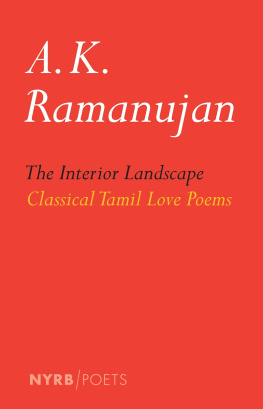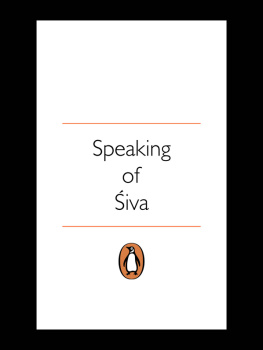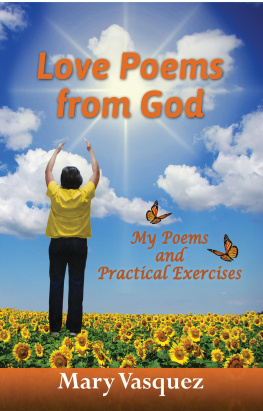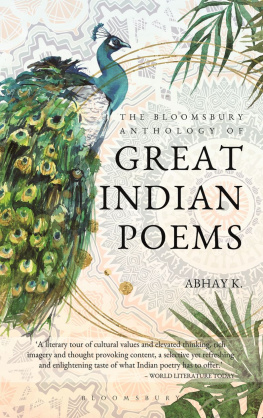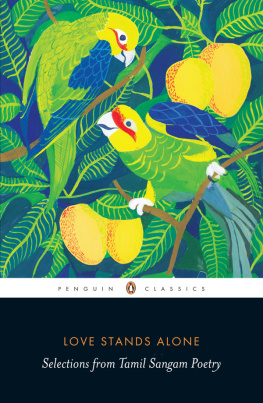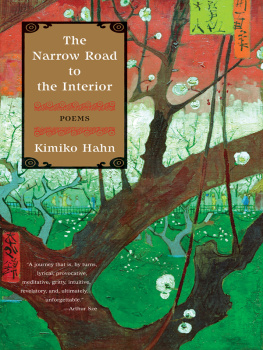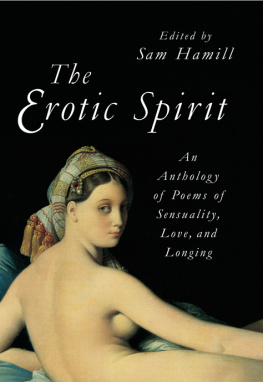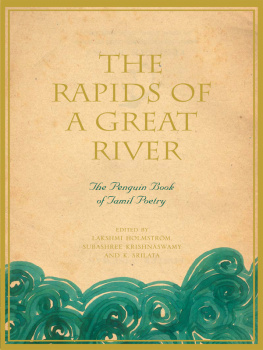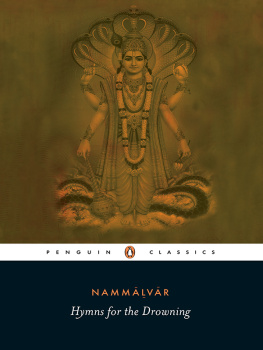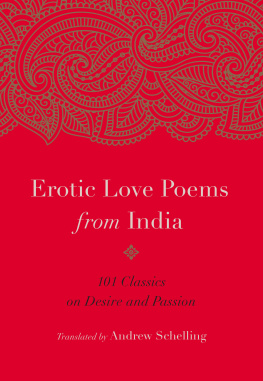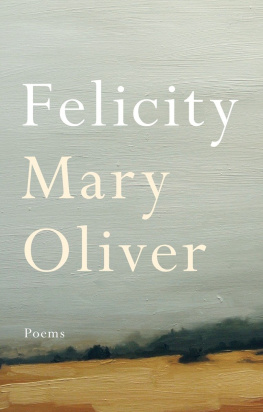A. K. R AMANUJAN (19291993) was born Attipat Krishnaswami Ramanujan in Mysore, India, the second of six children. A Tamil Brahmin of the Sri Vaishnava caste, Ramanujan grew up speaking Tamil, English, Sanskrit, and Kannada. He was educated at Mysore University and the Deccan College in India and at Indiana University, where he received a Ph.D. in linguistics, his thesis later published as a monograph titled A Generative Grammar of Kannada.
A poet in English and Kannada, a translator from Kannada and Tamil, as well as a scholar, folklorist, philologist, playwright, and essayist, Ramanujan, as Wendy Doniger once wrote, blazed a great path through the center of Indological studies. He gave us so many new paradigms that no Indologist can now think about India without thinking through his thoughts. Ramanujan served on the University of Chicago faculty for thirty-two years and was a professor in the Department of Linguistics and of South Asian Languages and Civilizations. His accidental discovery of an anthology of classical Tamil poems in the uncatalogued basement stacks of the universitys Harper Library led to The Interior Landscape. In 1976 the Government of India bestowed the title of Padma Shri, one of its most prestigious civilian awards, upon Ramanujan for his contributions to Indian literature and linguistics, and in 1983 he received a MacArthur Fellowship. A.K.
Ramanujans many publications include The Collected Poems of A.K. Ramanujan, The Collected Essays of A.K. Ramanujan, Folktales from India, Speaking of Siva, and Nammalvar: Hymns for the Drowning.
The Interior Landscape Classical Tamil Love Poems
EDITED AND TRANSLATED BY A.K. RAMANUJAN


NEW YORK REVIEW BOOKS New York THIS IS A NEW YORK REVIEW BOOK
PUBLISHED BY THE NEW YORK REVIEW OF BOOKS 435 Hudson Street, New York, NY 10014
www.nyrb.com
The publisher thanks Molly Daniels-Ramanujan and Krishna Ramanujan for arranging the publication of this edition as well as Charles Ellertson for his assistance with Tamil typography. Copyright 1967 by the Estate of A.K. Ramanujan All rights reserved.
Cover design by Emily Singer The Library of Congress has cataloged the earlier printing as follows: Kuuntokai. English. Selections. The interior landscape : classical Tamil love poems / edited and translated from the Tamil by A.K. Ramanujan. (New York Review Books Poets) Includes index. (New York Review Books Poets) Includes index.
ISBN 978-1-59017-678-8 (alk. paper) 1. Love poetry, TamilTranslations into English. I. Ramanujan, A.K., 19291993. 11 Co Coo / crowed the cock 157 Come, lets go climb on that jasmine-mantled rock 275 Cutting the throat of a sacrificial goat 263 Does that girl 142 Dont they really have 46 Even if passion should pass 42 Friend, / with no regard for youth 126 He just cannot have dug and entered the earth, nor climbed the skies 130 He did not come just one day: he did not come just two days 176 He had a beautiful war bracelet 15 Her arms have the beauty 131 Here, the trunk of the uky tree is soft 274 I am here. 11 Co Coo / crowed the cock 157 Come, lets go climb on that jasmine-mantled rock 275 Cutting the throat of a sacrificial goat 263 Does that girl 142 Dont they really have 46 Even if passion should pass 42 Friend, / with no regard for youth 126 He just cannot have dug and entered the earth, nor climbed the skies 130 He did not come just one day: he did not come just two days 176 He had a beautiful war bracelet 15 Her arms have the beauty 131 Here, the trunk of the uky tree is soft 274 I am here.
My virtue 97 I sewed and made 276 If / when you play water games 294 If her girl-friend should take the head of the raft 222 If one can tell morning 32 In the seaside grove 227 It looks as if the summers glowing 24 It would be nice, I think 269 It would help, dear friend 98 Let no sun burn 378 Like youngsters 61 Look, friend 112 Love, love 136 Man-eaters, male crocodiles with crooked legs 324 My friend, / I will not think again of him 243 My love is a two-faced thief 312 My lover capable of terrible lies 30 My lover has not come back 221 My man / of the roaring waters 271 Nowhere, not among the warriors at their festival 31 O did I not think of you 99 O friend, drunkards make pilgrimages 293 O long white moonlight 47 O man of the mountain slopes 18 On beaches washed by seas 299 On his hills 36 Once: if an owl hooted on the hill 153 Once you said 223 Only the dim-witted say it's evening 234 Only the thief was there, no one else 25 Our man of the hills 74 People say, You will have to bear it 290 People who know the way he went 12 Shall I charge like a bull 28 Sir, / not that we did not hear the noise 244 Tell me: / did you really see him 75 The bare root of the bean is pink 68 The great city fell asleep 138 The marauding wolf 56 The rains, already old 220 The sands are like heaped-up moonlight 123 The still drone of the time 6 These fat koai trees 66 These fault-finders 152 This bowman has a warriors band 7 This is worse than the sleepless agony 224 This singer is still a young student 33 What could my mother be 40 When a lovely girl bathing in a river 292 When love is ripe beyond bearing 17 When my lover is by my side 41 Where the pepper vine grows 288 Where the white waters from the peak 95 Will he not really think of us 16 Will he remember, friend 67 You know he comes from 8 You say that the wasteland 124 You, wearing red gold 281 Your mistresses wear the green leaf 295
For my motherTRANSLATORS NOTE
THE POEMS IN this book were selected from the
Kuuntokai, one of the eight anthologies of classical Tamil ascribed to the first three centuries A.D. The translations and the afterword (which some readers may prefer to read first) are two parts of one effort. The effort is to try and make a non-Tamil reader experience in English something of what a native experiences when he reads classical Tamil poems. Anyone translating a poem into a foreign language is, at the same time, trying to
translate a foreign reader into a native one. The originals would not speak freely through the translations to present-day readers if the renderings were not in modern English, and if they were not poems themselves in some sense. By the same token, the translations had to be close, as close as my sense of English and Tamil would allow.
My fidelity has been chiefly to the structure of the poems. This concern has led me away from translating every poem line by line. Rather I have rendered a poem phrase by phrase as each phrase articulates the total poem. I have paid special attention to the images and their placement. Sometimes I have made explicit typographic approximations to what I thought was the inner form of the poem; broken up lines and arranged them in little blocks and paragraphs, or arranged them step-wise; I have tried to suggest by the spacing the distance or the closeness of elements in the original syntax. The Tamil poets had no capitals, punctuation marks, nor any regular end-rhymes in the kind of blank verse they used for all these poems.
Tamil, unlike English, has a free word-order. The poets make excellent use of this freedom to create their poetic forms; the central nuance of a poem is most often enacted by the unusual yet perfectly acceptable positioning of sentence-parts and by the strategic placing of insets of imagery. The formal aspects of Tamil poetry are discussed in the afterword. So I will not go into any details here. I only request that the reader look upon the visual shape of the poems as nothing arbitrary or eccentric but as a way of indicating the design of the original poems. They are an essential part of the effort at fidelity.
Next page
